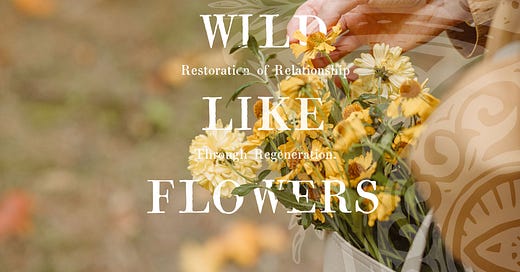Wild Like Flowers, Chapter 7: To Be A Weed
"The year 1597 was obsessed with plants. Playwrights and botanists alike published works that defined the age as a floral contest between opposing forces."
This is Chapter 7 of my second book, Wild Like Flowers: The Restoration of Relationship Through Regeneration. You can buy the book here. Or, you can read it here.
Chapter 7
Small herbs have grace;
great weeds do grow apace.
And since, methinks,
I would not grow so fast
Because sweet flowers are slow
and weeds make haste.
Richard III. Shakespeare.
The year 1597 was obsessed with plants. Playwrights and botanists alike published works that defined the age as a floral contest between opposing forces. Good and evil, health and disease were matched, weighed, and decided. William Shakespeare released Richard III and John Gerarde published The Herball, or, Generall Historie of Plantes. Whereas Shakespeare’s focus was placed on the unsettled and self-destructive human drive for power, Gerarde was focused on the original foundations of human health and disease.
The two energies unite in Shakespeare’s conversation between the Duke of York and the Duchess. Postulating a maxim for life, that herbs grow gracefully and weeds apace, the Duke arranges the argument that Richard, with his leisurely growth into manhood, should have been good and virtuous—a flower and not a weed. Observing the disconcerted and self-destructive nature of Richard in adulthood, the Duchess contends that the Duke’s maxim is lacking universality, for the “saying did not hold in him that did object the same to thee!”
Although in different frames, Shakespeare and Gerarde are both writing about the universality of truth and the particular power of individual context. Both are comparing patience and haste, good and evil, poisons and medicines, but they both conclude that there is more afoot than substance. What may be poison in one context is a powerful medicine in another. More broadly, they contend that there may not be a difference between herbs, flowers, and weeds beyond how we as humans, nurturers, and stewards perceive and use them. This story is about perception—it is about wildflowers and weeds.
Keep reading with a 7-day free trial
Subscribe to Unshod to keep reading this post and get 7 days of free access to the full post archives.





